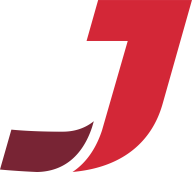


Tidal by Redwood and Rocket Zeke offer competing solutions in the tech landscape. Tidal by Redwood excels in pricing satisfaction and support, whereas Rocket Zeke is recognized for its advanced feature set.
Features: Tidal by Redwood offers robust analytics, seamless integration, and high flexibility. Rocket Zeke stands out with powerful automation tools, extensive customization options, and feature depth for complex tasks.
Ease of Deployment and Customer Service: Tidal by Redwood provides an easy deployment process and proactive customer support, ensuring smooth transitions. Rocket Zeke, while efficient in deployment, faces challenges in customer service responsiveness.
Pricing and ROI: Tidal by Redwood is cost-effective with a rapid return on investment. Rocket Zeke requires a higher initial investment, which is offset by its comprehensive features and long-term benefits.
| Product | Market Share (%) |
|---|---|
| JAMS | 2.8% |
| Tidal by Redwood | 4.5% |
| Rocket Zeke | 1.2% |
| Other | 91.5% |

| Company Size | Count |
|---|---|
| Small Business | 11 |
| Midsize Enterprise | 8 |
| Large Enterprise | 18 |
| Company Size | Count |
|---|---|
| Small Business | 3 |
| Midsize Enterprise | 6 |
| Large Enterprise | 38 |
JAMS is an automation and job scheduling solution designed for workflow optimization, catering to businesses large and small with flexible licensing and integration options.
Offering both Core and Advanced packages, JAMS supports a range of environments from small teams to large-scale operations. Its standout features include integration with platforms like PowerShell, SQL, and SAP, coupled with capabilities such as dependency management and natural language scheduling. JAMS simplifies job management, centralizes workflows, and boosts productivity with its robust automation features. Customizable workflows and insightful logging make it adaptable for diverse needs, supported by responsive customer service ensuring seamless operations.
What are JAMS's key features?In industries, JAMS is employed for automating workflows and managing batch jobs. Organizations utilize it for SSIS, SQL Server tasks, file transfers, and integrating with vendor systems, achieving efficient file automation and data management. Scheduler enables precise execution of thousands of tasks daily, enhancing operational efficiency.
Rocket Zeke offers a robust platform designed to streamline operations and enhance data management, tailored for organizations seeking efficiency and advanced analytics.
Rocket Zeke provides an adaptive solution that caters to the unique demands of data-intensive environments. Its architecture integrates seamlessly with existing systems, fostering a collaborative ecosystem that enhances productivity by enabling swift access to critical insights and analytics. With its analytical capabilities and processing power, Rocket Zeke transforms raw data into actionable intelligence, supporting strategic decision-making and operational excellence.
What are the important features of Rocket Zeke?Industries implementing Rocket Zeke experience significant enhancements in data processing and analytics, particularly in sectors like finance, healthcare, and logistics. These sectors leverage Rocket Zeke to gain data-driven insights that foster innovation, streamline processes, and support compliance with regulatory standards. The adaptability of the platform ensures it meets industry-specific demands, driving growth and sustained success.
Tidal Software is a leading provider of enterprise workload automation solutions that orchestrate the execution of complex workflows across systems, applications and IT environments. With a comprehensive portfolio of products and services, Tidal optimizes mission-critical business processes, increases IT cost efficiencies and satisfies legal and regulatory compliance requirements. Hundreds of customers around the world count on Tidal for modernizing their workload automation and driving their digital transformation. Tidal Software is headquartered in Chicago with offices in Houston, London, Minsk, Belarus and Chennai, India. For more information, visit tidalsoftware.com.
We monitor all Workload Automation reviews to prevent fraudulent reviews and keep review quality high. We do not post reviews by company employees or direct competitors. We validate each review for authenticity via cross-reference with LinkedIn, and personal follow-up with the reviewer when necessary.